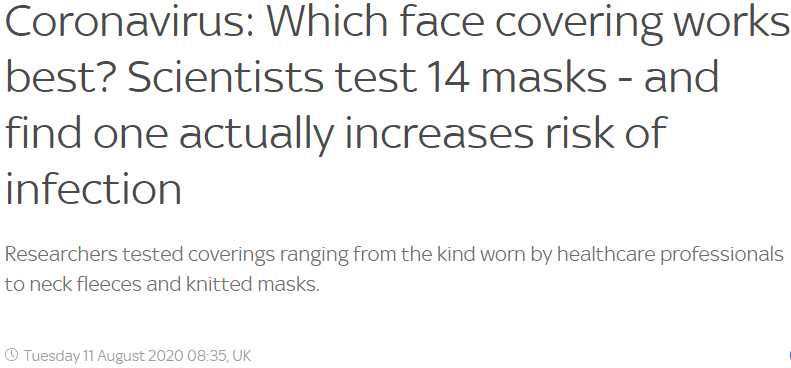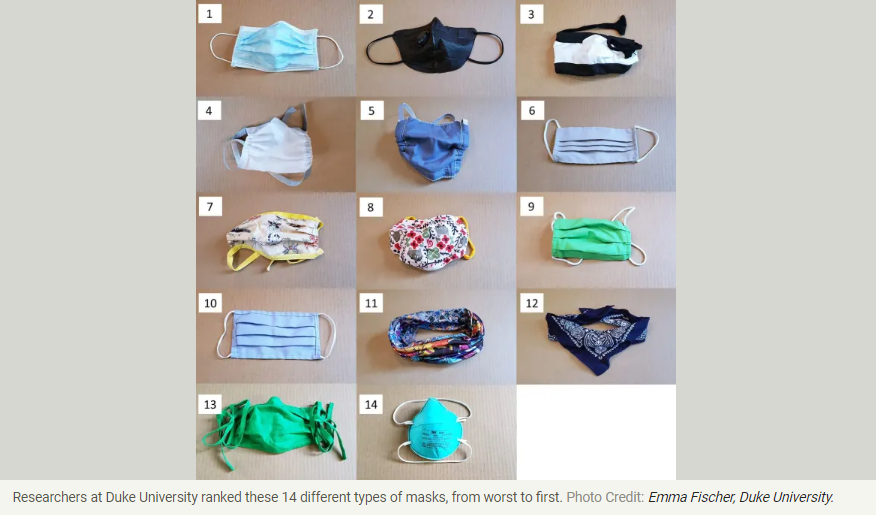Researchers from Duke University recently made a study to find out which of the face masks are the most and least effective in blocking droplets that might spread Covid-19 virus. The study shows that the N95 masks without valves is still the most effective among the face covering available out there while the fleece covering and bandanas offers the least or no protection at all.
SKY News: Coronavirus: Which face covering works best? Scientists test 14 masks – and find one actually increases risk of infection

Sky News recounts that researchers from Duke University have tested 14 different types of face-covering and found that one of them actually increases the risk of coronavirus infection.
The least effective face-covering in the study was a neck fleece which was found to actually increase the risk of infection by having a “droplet transmission fraction” of 110%.
Duke University researcher Martin Fischer told CNN that they were quite surprised to find that the number of particles measured with the fleece actually exceeded the number of particles measured without wearing any mask.

Fox News: The most and least effective coronavirus face masks, according to new study

According to Fox News, fitted, non-valved N95 masks are considered the best face coverings for preventing droplet spread and performed “far superior” to valved N95 masks because the exhalation valve opens for strong outward airflow, therefore putting those nearby at greater risk of exposure, researchers said.
On the other hand, they found that neck fleece, or bandanas, “offer very little protection” and actually disperse large droplets into a multitude of smaller droplets.
“Considering that smaller particles are airborne longer than large droplets (larger droplets sink faster), the use of such a mask might be counterproductive,” the study authors wrote.








